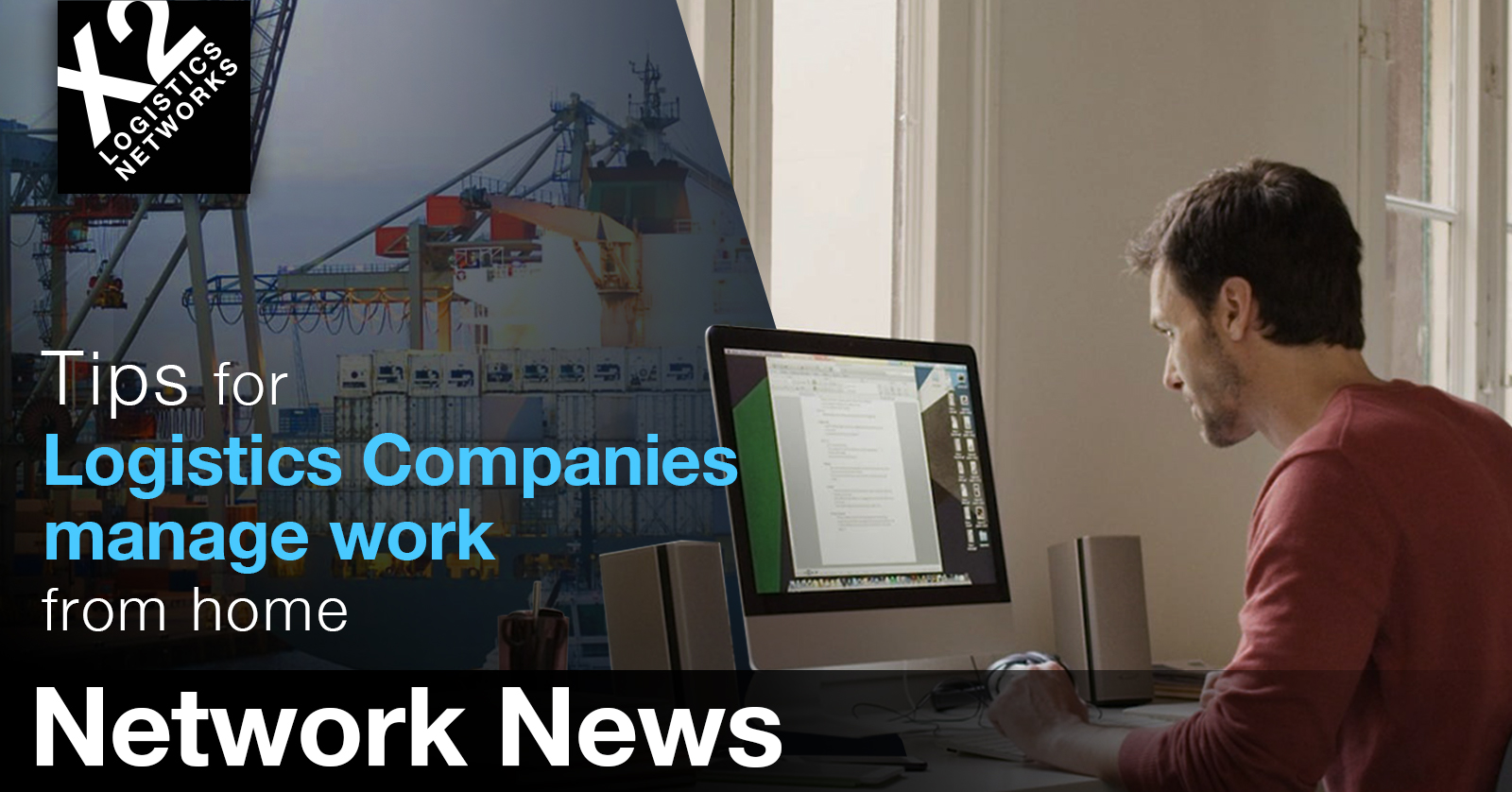Tips for logistics companies manage work from home


As much as remote work can be fraught with challenges, there are also relatively quick and inexpensive things that logistics companies can do to ease the transition. Below are some actions that you can take today.
Establish structured daily check-ins
Many successful remote managers establish a daily call with their remote employees. This could take the form of a series of one-on-one calls, if your employees work more independently from each other, or a team call, if their work is highly collaborative. The important feature is that the calls are regular and predictable, and that they are a forum in which employees know that they can consult with you, and that their concerns and questions will be heard.
Provide several different communication technology options
Email alone is insufficient. Remote workers benefit from having a “richer” technology, such as video conferencing, that gives participants many of the visual cues that they would have if they were face-to-face. Video conferencing has many advantages, especially for smaller groups: Visual cues allow for increased “mutual knowledge” about coworkers and also help reduce the sense of isolation among teams. Video is also particularly useful for complex or sensitive conversations, as it feels more personal than written or audio-only communication.
There are other circumstances when quick collaboration is more important than visual detail. For these situations, provide mobile-enabled individual messaging functionality (like Slack, Zoom, Microsoft Teams, etc.) which can be used for simpler, less formal conversations, as well as time-sensitive communication.
And then establish “rules of engagement”
Remote work becomes more efficient and satisfying when managers set expectations for the frequency, means, and ideal timing of communication for their teams. For example, “We use videoconferencing for daily check-in meetings, but we use IM when something is urgent.” Also, if you can, let your employees know the best way and time to reach you during the workday (e.g., “I tend to be more available late in the day for ad hoc phone or video conversations, but if there’s an emergency earlier in the day, send me a text.”) Finally, keep an eye on communication among team members (to the extent appropriate), to ensure that they are sharing information as needed.
Provide opportunities for remote social interaction
One of the most essential steps a manager can take is to structure ways for employees to interact socially (that is, have informal conversations about non-work topics) while working remotely. This is true for all remote workers, but particularly so for workers who have been abruptly transitioned out of the office.
The easiest way to establish some basic social interaction is to leave some time at the beginning of team calls just for non-work items (e.g., “We’re going to spend the first few minutes just catching up with each other. How was your weekend?”). Other options include virtual pizza parties (in which pizza is delivered to all team members at the time of a videoconference), or virtual office parties (in which party “care packages” can be sent in advance to be opened and enjoyed simultaneously). While these types of events may sound artificial or forced, experienced managers of remote workers (and the workers themselves) report that virtual events help reduce feelings of isolation, promoting a sense of belonging.
Offer encouragement and emotional support
Especially in the context of an abrupt shift to remote work, it is important for managers to acknowledge stress, listen to employees’ anxieties and concerns, and empathize with their struggles. If a newly remote employee is clearly struggling but not communicating stress or anxiety, ask them how they’re doing. Even a general question such as “How is this remote work situation working out for you so far?” can elicit important information that you might not otherwise hear. Once you ask the question, be sure to listen carefully to the response, and briefly restate it back to the employee, to ensure that you understood correctly. Let the employee’s stress or concerns (rather than your own) be the focus of this conversation.
In addition to these hacks and tips, we need to remember during this time of crisis (and always) to take care of ourselves so that we can support and be of assistance to others. Take care, everyone. Be safe, and see you on the other side.
Member Testimonials
Our Partners
X2 Conference
Our special networking event is about smart freight forwarders coming together to grow and develop business within the group by providing an opportunity for all members to gather in one place to form and extend personal relationships.
- 1
- 2
- 3
- 4
- 5
- 6
- 7
- 8
- 9
- 10
- 11
- 12

NEW YORK
- 1
- 2
- 3
- 4
- 5
- 6
- 7
- 8
- 9
- 10
- 11
- 12

sao paulo
- 1
- 2
- 3
- 4
- 5
- 6
- 7
- 8
- 9
- 10
- 11
- 12

london
- 1
- 2
- 3
- 4
- 5
- 6
- 7
- 8
- 9
- 10
- 11
- 12

dubai
- 1
- 2
- 3
- 4
- 5
- 6
- 7
- 8
- 9
- 10
- 11
- 12

bangkok
- 1
- 2
- 3
- 4
- 5
- 6
- 7
- 8
- 9
- 10
- 11
- 12

hong kong
- 1
- 2
- 3
- 4
- 5
- 6
- 7
- 8
- 9
- 10
- 11
- 12

tokyo
- 1
- 2
- 3
- 4
- 5
- 6
- 7
- 8
- 9
- 10
- 11
- 12

sydney
Book a Discovery Call with our Network Development Managers
Got questions or want to explore new opportunities within our networks? Schedule a one on one meeting with our Network Development Managers.


























.jpg)








































